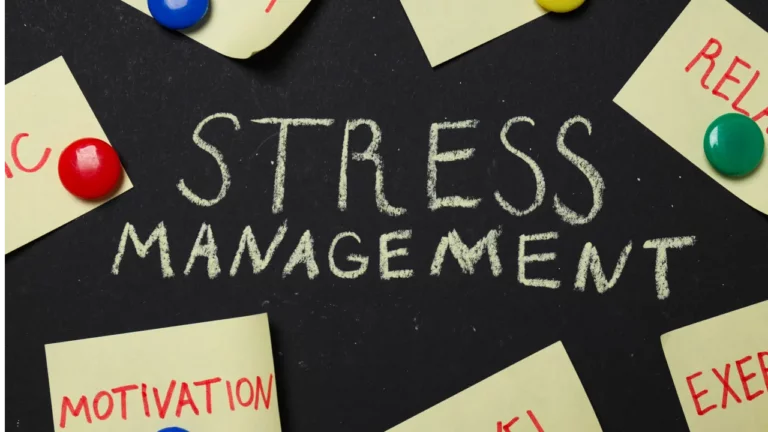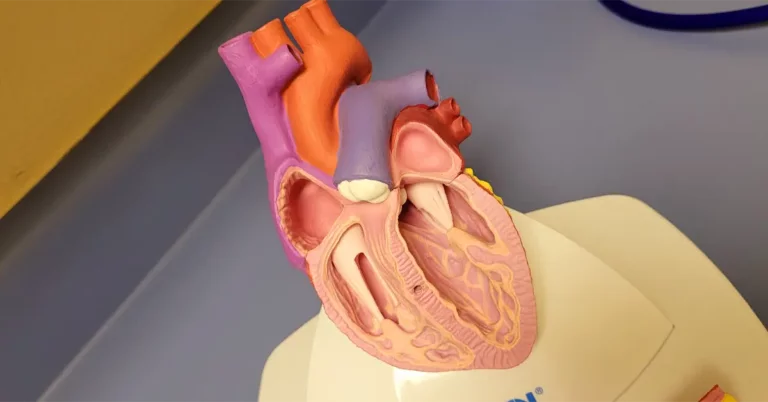According to The American Institute of Stress, a staggering 77% of people experience stress that affects their physical health, 73% have stress that impacts their mental health, and 48% struggle with sleep problems due to stress. Moreover, stress can increase the risk of heart disease, making stress management crucial for overall well-being. This article will discuss the essential tools and resources for managing stress and how remote patient monitoring (RPM) can aid in stress management.
When is Stress Awareness Month?
Since 1992, Stress Awareness Month has been observed every April to raise awareness about the stress epidemic that has become increasingly prevalent in our fast-paced modern world. The main goal of this month is to promote stress management techniques for both personal and workplace settings. The International Stress and Tension Control Society, which was founded in 1974, changed its name to the International Stress Management Association in 1989, and has since been actively involved in promoting stress awareness and management.
Understanding Stress
Stress is a response to challenging situations that can be physical, emotional, or environmental. When faced with a stressful situation, the body releases stress hormones to prepare for a fight or flight response. However, prolonged exposure to stress can lead to increased stress levels, which can have negative effects on physical and mental health. Therefore, it is important to recognize the dangers of stress and take steps to manage it to avoid the rush that can come with it.
Causes of Stress
There are many different causes of stress, which can be grouped into several categories.
- External Factors: These include stressors that come from outside of us, such as:
- Work or school demands
- Financial problems
- Relationship issues
- Major life changes (for example: the death of a loved one)
- Internal Factors: These include stressors that arise from within us, such as:
- Negative self-talk
- Unrealistic expectations
- Perfectionism
- Lifestyle Factors: These include habits and behaviors that can make us more vulnerable to stress, such as:
- Poor nutrition
- Lack of exercise
- Inadequate sleep
Keep in mind that these are just a few examples of the many factors that can contribute to stress. It’s important to recognize that stress is complex and can vary widely from person to person.
Effects of Stress
Stress is a complex phenomenon that affects different people in different ways. Understanding the effects or impacts of stress is crucial for effective stress management. According to the Centers for Disease Control and Prevention (CDC), stress can cause a range of physical and psychological symptoms, including:
- Worsening of mental health conditions and chronic health problems;
- Feelings of fear, sadness, anger worry, frustration or numbness;
- Changes in appetite, desires, interests, and energy;
- Physical reactions such as body pains, headaches, skin rashes, or stomach problems;
- Nightmares and/or problems sleeping;
- Increased use of alcohol, illegal drugs (like heroin, cocaine, or methamphetamine); and
- Misuse of prescription drugs (like opioids), and trouble concentrating and making decisions.
Types of Stress
There are also different types of stress, including acute stress and chronic stress.
- Acute stress: This is a short-term stress response that occurs in response to a specific event or situation. It can be helpful in certain situations, such as when we need to react quickly to a potential danger.
- Chronic stress: This is a long-term stress response that can occur in response to ongoing stressors, such as work-related stress or financial worries. If left untreated, chronic stress can be harmful to our health and well-being.
How to Manage Stress at Home
Stress can affect various aspects of our lives, including physical health, mental well-being, and overall quality of life. Managing stress is crucial for maintaining good health and well-being. Here are some ways to help you manage stress at home:
- Exercise and physical activity: Engaging in regular exercise and physical activity is a beneficial way to decrease stress levels and enhance overall well-being. Various activities, including walking, running, yoga, or strength training, can be included in your routine to achieve these benefits.
- Mindfulness and meditation: Focusing the mind on a soothing activity, such as deep breathing or visualization exercises, can be an effective way to reduce stress and promote relaxation. Incorporating mindfulness and meditation practices into one’s routine can be helpful in achieving this state of mind.
- Healthy diet: Maintaining a healthy and balanced diet can help reduce stress and improve overall health. This diet can include consuming a variety of fruits, vegetables, whole grains, lean proteins, and healthy fats.
- Adequate sleep: Obtaining a good night’s sleep is crucial in managing stress and promoting overall well-being. To manage stress through sleep, it is important to establish healthy sleep habits such as creating a comfortable sleep environment, adhering to a consistent sleep schedule, and practicing relaxation techniques before bedtime.
- Limiting technology use: Excessive use of technology can contribute to stress and disrupt sleep patterns. Limiting screen time and taking breaks from technology can help reduce stress and promote relaxation.
- Self-Care and Relaxation: Taking care of oneself and making time for relaxation is essential for stress management. This care can include engaging in hobbies or activities that bring joy and relaxation, spending time with loved ones, or simply taking time for oneself to recharge.
- Remote patient Monitoring: One of the most effective ways to manage stress is by utilizing RPM technology in healthcare. This advanced technology enables healthcare providers to remotely monitor patients’ health using digital devices and telecommunication technologies. By providing real-time feedback on a patient’s vital signs and health status, RPM can help detect and intervene early on stress-related health issues.
DrKumo RPM Solutions for Stress Management at Home
DrKumo is a technology leader that provides state-of-the-art RPM solutions for managing chronic diseases, acute care, post-operative care, and hospital care at home. DrKumo’s solutions offer real-time monitoring, which allows healthcare providers to provide timely intervention, prevent adverse events, and improve patient outcomes.
How to Manage Stress Using DrKumo RPM
Stress and anxiety can significantly impact a person’s mental and emotional well-being, which can further exacerbate existing health problems. DrKumo RPM solutions can be of great help in relieving stress and anxiety associated with managing chronic conditions. Patients can receive personalized care from the comfort of their homes, reducing the need for frequent hospital visits and lengthy stays. This care can help alleviate the stress associated with managing a chronic condition, while also providing patients with a greater sense of independence and control over their health.
Furthermore, healthcare providers can also benefit from DrKumo RPM solutions. Providers can access patient data anytime, anywhere, and receive alerts in case of any significant changes in the patient’s health status. This access enables health professionals to intervene early and prevent complications, reducing the stress associated with providing care to patients.
How to Manage Health Problems Due to Stress Using DrKumo RPM
Stress can cause several health issues such as heart disease, high blood pressure, and diabetes. DrKumo RPM platform offers a solution to manage these health problems by providing continuous monitoring of vital signs and other health parameters. Along with this, DrKumo health wearable devices like smartwatches are capable of detecting stress levels. By continually monitoring the patient’s health status, healthcare providers can identify any changes and take early intervention to prevent further complications.
In addition, DrKumo RPM technology also provides patients with access to health education and resources, which can help them cope with stress and improve their overall well-being. There are many ways to deal with stress, and DrKumo RPM offers a comprehensive approach to managing stress-related health problems.
When to Seek Professional Help
While self-care and stress management techniques can be effective for managing stress, there may be times when seeking professional help is necessary. If stress is interfering with daily life and activities, or if it is causing significant distress, it may be time to seek professional help. Other signs to look out for include persistent feelings of sadness, hopelessness, or anxiety, changes in appetite or sleep patterns, or difficulty concentrating.
Takeaways
Stress is a common experience that can have negative impacts on both physical and mental health. However, there are many strategies that can be used to manage stress, including self-care, relaxation techniques, and seeking professional help when necessary. As we celebrate Stress Awareness Month 2023, it is important to take action in managing stress and to prioritize ongoing stress management for overall well-being. Remote monitoring solutions can also be a valuable tool in stress management by providing continuous monitoring and support for patients in the comfort of their own homes. Remember, managing stress is a journey, and it is important to seek support and make self-care a priority.
Learn how to manage stress and address health problems related to stress by integrating DrKumo RPM into your home health management plan. Contact DrKumo today!
Disclaimer: The information presented in this article is not intended as a substitute for medical advice. For a personalized stress management plan, seek guidance from healthcare professionals.








